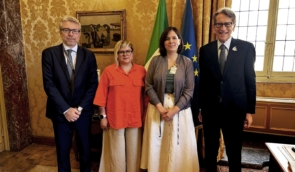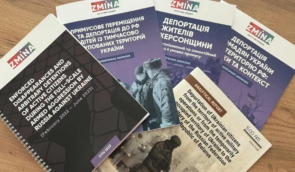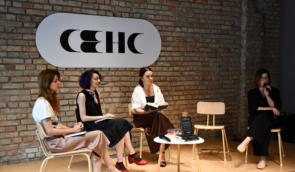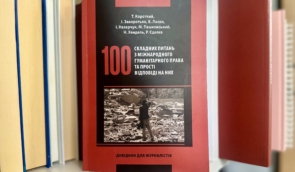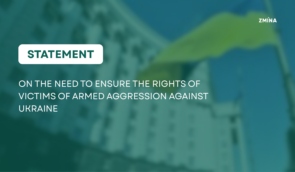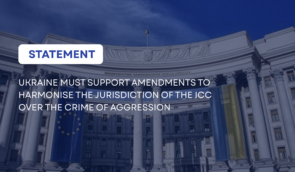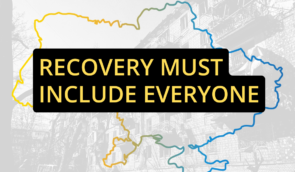Film screening “Nariman: the voice of Crimea” took place in Brussels
On 24 May 2023, the Human Rights Centre ZMINA in cooperation with the Permanent Representation of Poland to the European Union held a film screening about the life of the Crimean Tatar political prisoner Nariman Dzhelyal followed by a discussion of the experts advocating for human rights in Crimea.
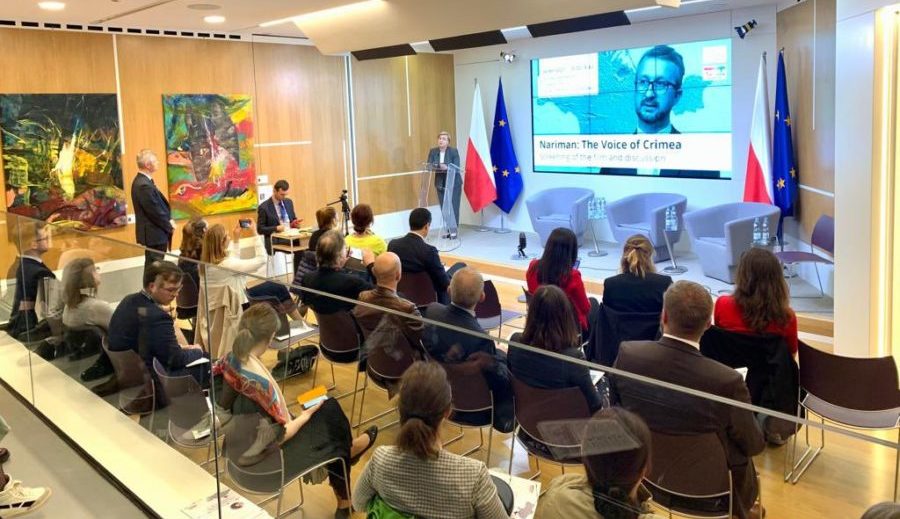 Photo: Representation of Poland to the European Union
Photo: Representation of Poland to the European UnionThe event was opened by the deputy head of the Permanent Representation of Poland to the EU Maciej Stadejek: he shared with the public the condemnation of the actions of the Russian occupiers who suppress ethnic Ukrainians and Crimean Tatars. “There have been cases of enforced disappearance, torture, killings, filtration, and intimidation of journalists, lawyers, and civil society activists in Crimea,” he said.
Maciej Stadejek expressed full support of the Crimean Tatars and Ukrainians in the occupied Crimea and hoped the “blue and yellow flag will wave in Crimea again” soon.
Member of the European Parliament Anna Fotyga joined welcoming words assuring her most profound support for the Crimean Tatar people and condemning the actions of Russia; she underlined that “we have to expel our common enemy – the Russian imperialism. Since the beginning of this invasion, the war has approached the borders of the European Union. The aggressor has to be defeated once and forever.“
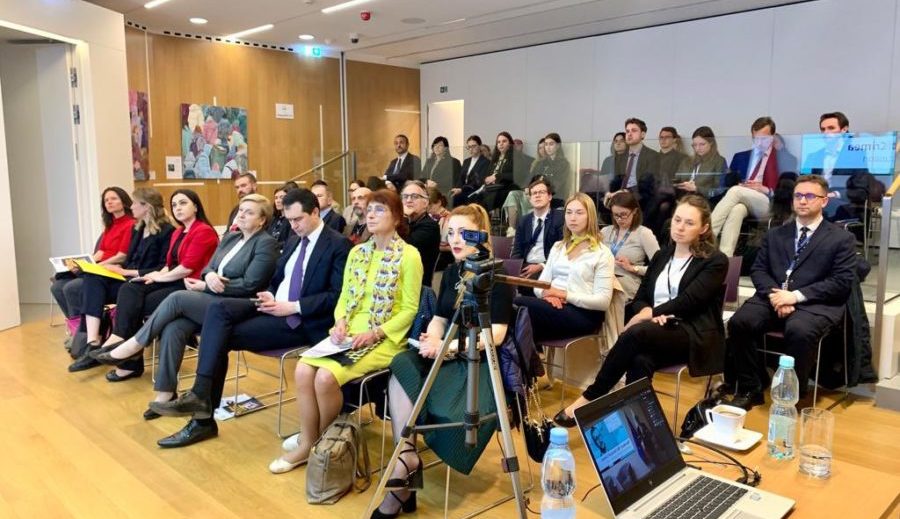 Photo: Representation of Poland to the European Union
Photo: Representation of Poland to the European UnionThe event guests watched a documentary about “Nariman: The Voice of Crimea” directed by Anna Tsyhyma. The film speaks about Nariman Dzhelyal, the deputy head of the Mejlis, the representative body of the Crimean Tatar people. He stayed in Crimea under Russian occupation and did everything he could to help those who had trusted him.
When the Russian occupation authority banned the Mejlis in 2016, Nariman continued his work to support the families of political prisoners and raise awareness about human rights violations in Crimea. In 2021 he and two other activists were sentenced on fabricated charges from 13 to 17 years in prison.
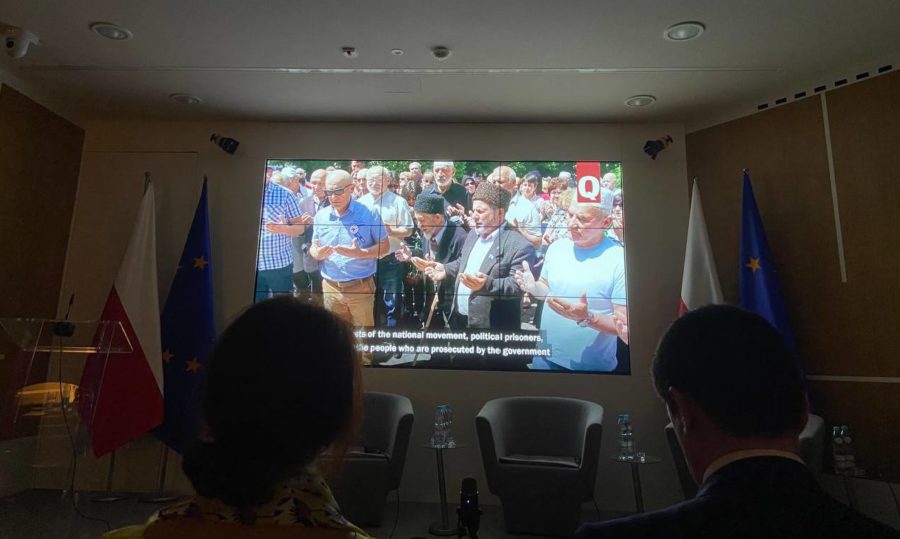 Photo: ZMINA
Photo: ZMINAA discussion about the destiny of Nariman Dzhelyal and the suppression of Crimean Tatars on the territory of the occupied Crimea followed the film screening.
“Since 2014, the Crimean Tatar people in Crimea have been subjected to constant persecution by the Russian Federation on political and religious grounds. Despite the peaceful ways of defending our views, beliefs, and rights, we are accused of extremism and terrorism. Because of this, people in Crimea now live in an atmosphere of fear. All those who disagree can become unjustly persecuted: over 180 Ukrainian citizens in Crimea have already become victims of political repression,” told the wife of Nariman — Leviza Dzhelyal.
She shared with the public that Nariman remained and worked in Crimea until his arrest despite direct threats. Wanting to silence him, the occupation authorities decided to try him for fictitious sabotage: the gas pipeline explosion allegedly took place on August 23, 2020, while he was at the summit of the Crimean Platform in Kyiv.
During the trial of Nariman Dzhelyal and the Akhtemov brothers, many procedural violations were recorded, which gives grounds to talk about the falsification of the criminal case. Seven people questioned in the case, including Nariman, Asan, and Aziz, were subjected to psychological and physical pressure and torture.
Leviza Dzhelyal underlined that her husband was treated rudely and was unjustifiably transferred to the most isolated prison, where it is almost impossible to get medical help which poses a severe threat to his life.
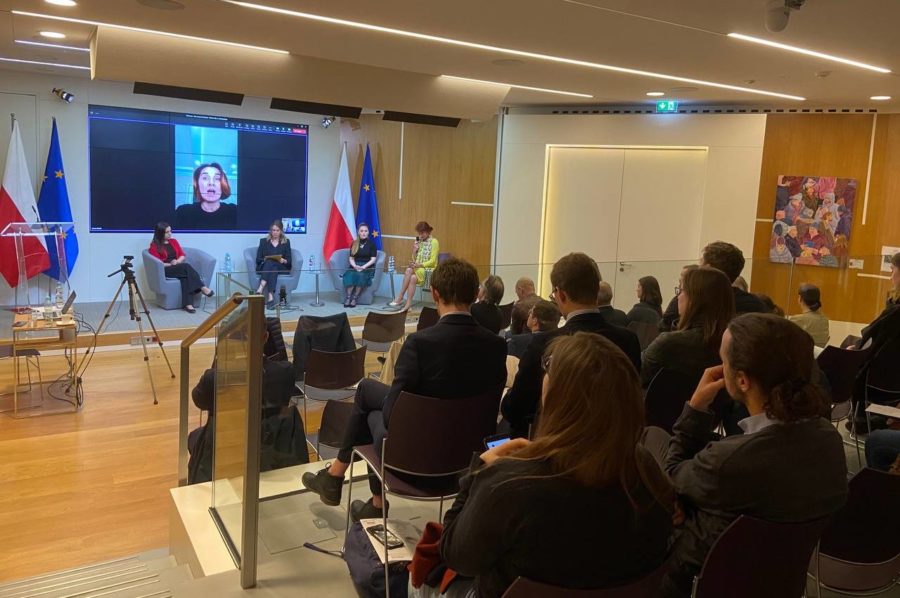 Photo: ZMINA
Photo: ZMINATetiana Pechonchyk from ZMINA confirmed that political prisoners face a high health risk due to inadequate conditions of detention and the reluctance of occupation authorities to provide prisoners with medical care. She noted that two political prisoners have already died this year in custody — Kostiantyn Shyring and Dzhemil Hafarov.
Pechonchyk also reminded the story of Leniie Umerova — the Ukrainian 25-year-old woman of Crimean Tatar origin, who traveled to her cancer-stricken father in occupied Crimea. Upon crossing the Georgian-Russian border, Russian security forces detained her, alleging that she violated the security zone regulations. They held her hostage for over four months and transferred Leniie to the Lefortovo pre-trial detention facility in Moscow, accusing her of alleged “espionage.”
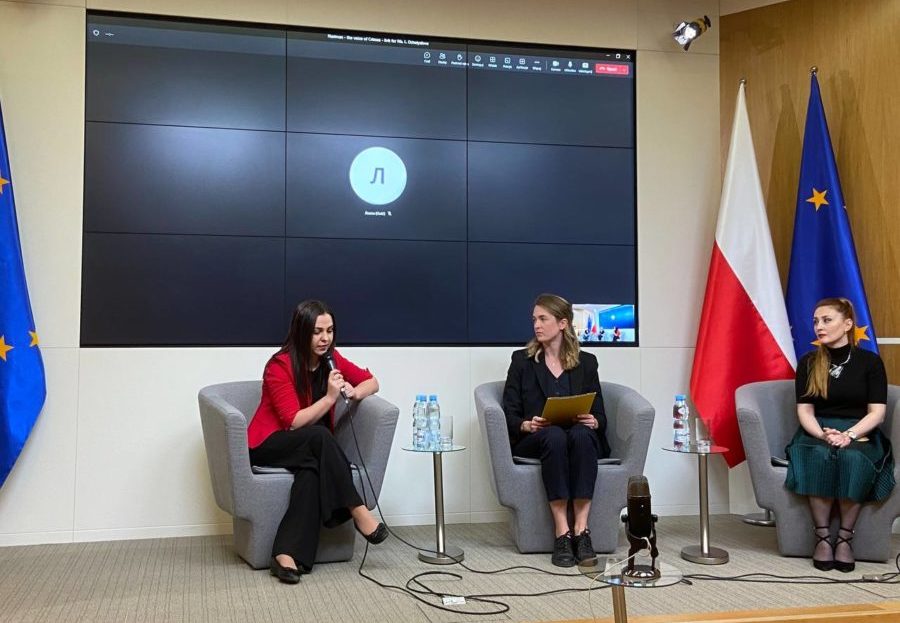 Photo: ZMINA
Photo: ZMINAGulnara Abdulaieva, a film heroine, Crimean Tatar historian and journalist, added: “Unfortunately, Crimea is a gray occupied zone now, where democracy, freedom of speech, and religion have turned into an empty sound. People live under total control and psychological pressure. There was already such a period in the history of Crimea — it was the first occupation in 1783. And if we now draw parallels, then 231 years later, history repeated itself with astonishing accuracy.”
She called the international society to use all possible political and diplomatic means to release illegally convicted political prisoners, support their families and lawyers who, at their own risk, defend political prisoners, and return the temporarily occupied Crimea to its homeland — Ukraine.
Photo credits: ZMINA and Representation of Poland to the European Union
If you have found a spelling error, please, notify us by selecting that text and pressing Ctrl+Enter.

